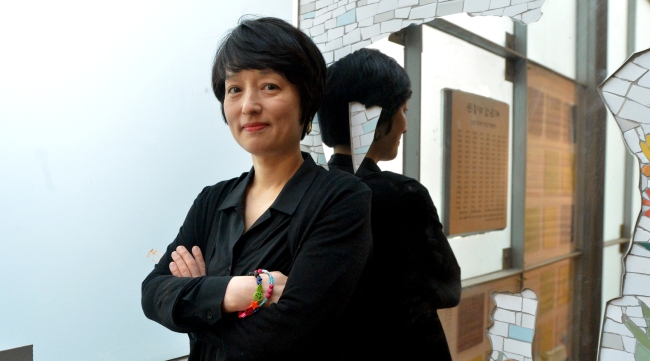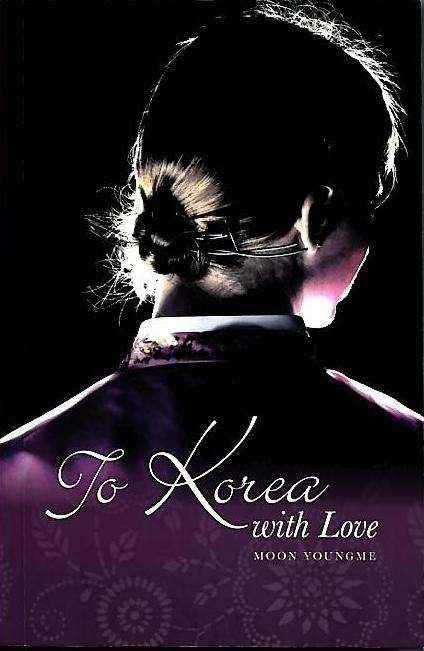In 1961, at age 25, Faye Pinchbeck crossed the Pacific Ocean to be with her beloved, a Korean man 15 years her senior. The American woman from Connecticut met Stephen Moon (Moon Tong-hwan), well-known pastor and social activist, while studying to be a social worker at Hartford Seminary in the U.S., where Moon was working on his doctorial thesis in Christian Education as an international student.
After landing in the port of Busan, Faye married Moon in Seoul on a snowy day. So began a remarkable journey in Korea spanning three decades, where she learned to be a Korean wife ― she wore only hanbok her first years here in efforts to fit in. She worked as a social worker with the U.S. army and local prostitutes living near U.S. military bases. At the same time, she dealt with her husband’s social activism and imprisonment under Korea’s military government until moving back to the U.S. in the early 1990s.
Now 78, Faye, who returned to Korea with her husband about a year ago, hardly remembers her time spent here. She’s has suffered from Alzheimer’s disease for some six years, and sometimes even forgets she’s married to the man she’s spent her life with. What she reads every morning, with her husband in her company, is her biography written by her daughter and author Moon Young-me. It is her way to remember what she now does not.

Moon Young-me poses for a photo prior to an interview with The Korea Herald on Thursday. (Yoon Byung-chan/The Korea Herald)

“To Korea with Love.” (LTI Korea)
“My mother would tell my father something like, ‘Can we get married since we love each other this much?’” said author Moon during an interview with The Korea Herald in Seoul.
Moon initially wrote and published the book in Korean in 1999. Butch Durst, an American missionary and family friend who lived in Korea in the 1970s, volunteered to translate the text into English in the early 2000s. Moon and Louise Morris then together worked on the translated text, checking facts and editing. The English edition of the biography, titled “To Korea with Love,” was recently published by Singaporean publisher Stallion Press.
“When I first wrote the book back in 1999, I focused on the issues like local prostitutes and the Korea-U.S. relations,” Moon said. “And now I think about it, my mother was one of the first migrant wives in Korea, and this book chronicles her struggles as she tries to adjust to new cultural surroundings. I think the book can be a helpful resource for today’s migrant women, as it provides what to expect in Korea when living here (as a wife).”
For Moon, Faye was a fun-loving mother, who had creative ways to nurture her kids. When she briefly stayed in the U.S. with her mother and mother’s family as a child, Faye gathered Moon and her cousins in their garage, and organized a play based on the well-known children’s story “Peter and the Wolf.”
She would provide costumes and the music, give each child a role to play, and direct the show. Faye also used this creativity when working with local prostitutes in Korea from 1986 to 1992.
“While thinking of ways to help the women, my mother thought of baking,” Moon said. “She would teach them how to bake and sell the bread for them.”
Even after moving back to the U.S., Faye continued to help Korean women in the country, including a woman who moved to the U.S. after marrying a U.S. soldier she met in Korea. The woman eventually became a single mother in the foreign country, until one day she returned from work, to find her young son pinned under a collapsed closet in her apartment.
With her limited English, she told the police, “It is my fault,” blaming herself for the child’s death, as she wasn’t at home when the furniture fell. The police, however, thought she was admitting to the murder of her own child. She was sentenced to 20 years in prison. With Faye and other individuals’ help, the woman was eventually released.
“One of the things I learned from my mother is not to have prejudice against anyone,” Moon said. Faye chose a high school where students of diverse ethnic and socio-economic backgrounds attended when they briefly moved to the U.S.
“Perhaps it was how my grandparents raised her. Perhaps it was one of my mother’s innate qualities. Regardless, I think not having prejudice helped her to accomplish what she has accomplished.”
While busy with her work, Faye also experienced “reverse” culture shock and depression in her home country, returning after some 30 years in Korea. Moon’s book records those difficult times as well.
“After returning to the U.S., my mother’s depression was so deep that whenever we spoke by phone, I could almost feel it coming through the phone line into my bloodstream, like a contagious disease,” Moon wrote in the book. “In spite of periods of complete hopelessness, however, she never gave up. I believe all of those struggles are important chapters of her life. She is a courageous woman, who made some unusually risky choices, not the least of which was marrying my father.”
By Claire Lee (
dyc@heraldcorp.com)







